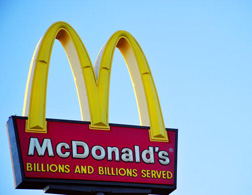
How's this for a deal: You pay me $13.09 a week. In exchange, I will pay your medical bills, but only up to $2,000 a year. Maybe that deal makes sense if you know with absolute certaintythat your medical expenses in the coming year will fall between $680.68 ($13.09 each week for 52 weeks) and $2,000. It makes no sense at all if there's the slightest chance you might end up in the hospital. True, if your hospital expenses exceed $2,000 you'll have lowered the bill by about $1,300. But $1,300 won't likely cover even the cost of an ambulance, much less anything that happens after you arrive. You'd be better off using that $13.09 to buy yourself a weekly lottery ticket.
Health care reform is all about replacing such bait-and-switch schemes with real health insurance. That should indeed happen in 2014, when state health insurance exchanges start selling federally subsidized policies offering a minimum standard of coverage that will not permit (for example) putting a $2,000 ceiling on payouts.What I'm describing is an actual health insurance policy. Its technical name is "mini-med plan," but more commonly it goes by the term "crap health insurance." The specific plan described here is what McDonald's offers unmarried new recruits, and the Health and Human Services department just granted it a temporary waiver. McDonald's also offers slightly more generous plans at slightly higher cost: $24 per week for a policy with a $5,000 ceiling and $32 per week for a policy with a $10,000 ceiling.
But it was supposed to happen sooner. Annual limits on payouts are already being phased out under the health care law; as of Sept. 23, they aren't allowed to fall below $750,000, which is a whole lot more than McDonald's' $2,000, $5,000, or $10,000. But HHS signaled it was willing to grant waivers to mini-meds. Then the mini-meds fell afoul of another pending regulation concerning the "medical-loss ratio"; i.e., how much revenue insurers spend on health benefits as opposed to overhead or dividends to stockholders. The rule requires health insurers to spend between 80 percent and 85 percent of their revenue on medical care. No can do, McDonald's told HHS in an e-mail obtained by theWall Street Journal's Janet Adamy. The high turnover rate among McDonald's' employees, the company said, occasions lots and lots of paperwork, so we can't keep our administrative costs down relative to our payouts, which—in case you hadn't noticed—are pretty darned low to begin with. On these dubious grounds, HHS granted the mini-meds an exemption through 2011 that could easily stretch to 2014.
The Journal reported that McDonald's was threatening to drop its health care plan if it didn't get its exemption. That would seem an accurate interpretation of McDonald's' assertions that the cost of the medical-loss ratio "would be economically prohibitive for our carrier" and that "having to drop our current mini-med offering would represent a huge disruption to our 29,500 participants." But it elicited huffy denials not only from McDonald's ("Media reports stating that we plan to drop health care coverage for our employees …. are purely speculative and misleading") but also, weirdly, from HHS Secretary Kathleen Sebelius ("flat out wrong"). Why lie to protect McDonald's? Sebelius could have said, "Yes, McDonald's says it may not offer health insurance to its workers anymore. But what they call health insurance wouldn't meet the fiduciary standards of a second-rate Christmas club." Why didn't she say that?
Because McDonald's was smart enough to know where the Obama administration is vulnerable. "If you like your insurance plan, you will keep it," President Obama said right after he signed the health reform bill. "No one will be able to take that away from you." That had been Obama's mantra since the 2008 presidential campaign, because he knew people worried about losing what they had. For the most part, Obama kept his promise. But if HHS had stood up to McDonald's and said sorry, paying no more than $2,000 in medical benefits is not our idea of insurance, and if McDonald's, as a consequence, had stopped offering its preposterously stingy mini-med plan, then McDonald's would arguably have won the right to call Obama a liar. Simply because Obama never thought to add the eminently reasonable caveat, "unless, of course, your health plan is utter crap."
Not even the insurance industry considers mini-med plans to constitute real health insurance. The National Association of Health Underwriters says: Mini meds are not intended to replace comprehensive coverage." Then why do employers offer them? Because, the underwriters explain (perhaps a bit too frankly), "Not providing insurance can have a dramatic impact on employee recruiting and retention." If employees don't get health insurance they'll leave. To keep them, employers like McDonald's offer ersatz insurance.
The temporary relief afforded mini-meds may be no big deal if the industry is going to be extinguished a little more than three years from now anyway. But will it be extinguished? In Washington, one waiver often leads to another. Assuming he's still president, Obama can just as easily be called a liar when the insurance exchanges put McSurance out of business in 2014; the only difference is that employees of McDonald's (and other companies with mini-med plans; they're especially big in retail) will have someplace else to go. Will Obama in 2014 have the guts to tell the mini-med providers that the jig is up? I hope so. If the president in 2014 isn't Obama, but rather Obama's GOP opponent from 2012, will President Republican shut down a still-thriving mini-med racket? Don't bet on it.
No comments:
Post a Comment